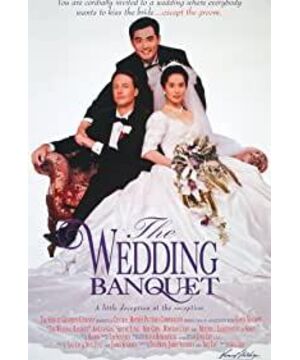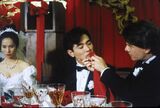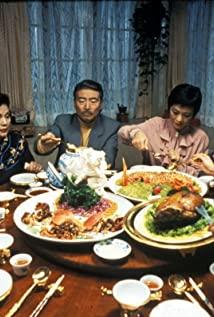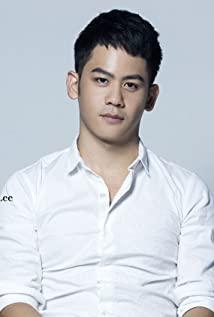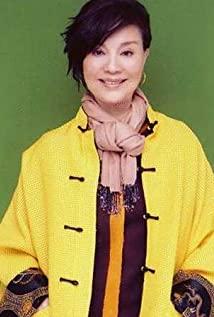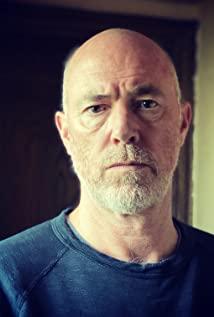Not long ago, I watched the Taiwanese documentary "Chinese Crossing the World-Ang Lee", which tells Ang Lee's growth process. What impressed me most is that Ang Lee has been "dormant" in New York for six years after graduating from the Film Department of New York University. These six years are six years of obscurity, six years of bleak prospects, six years of inner distress, but at the same time, six years of keeping a low profile. What did Ang Lee do in the past six years? Ang Lee himself said that it’s not that he can’t go to work on the set. Like many people, he approaches the film first, raises his family first, and then pursues his ideals step by step. However, he believes that the screenwriter is the most important thing for a director. "In the six years of life, Ang Lee was actually sinking his heart to exercise his inner strength. In the next six years, there will be a major turning point in his life when he wins the script award in Taiwan with the two scripts "The Wedding Banquet" and "Pushing Hands" in Taiwan and thus wins the opportunity to direct. Although Ang Lee is completely popular nowadays, in my opinion, the best in his movies is the "Father Trilogy" written by Ang Lee himself. This is Lee Ang's life complex. It flows from the blood of a Chinese.
It is the screenwriting ability that gave Li Ang, a shy person who even admitted that he was not good at interpersonal communication, the opportunity to soar in the movie circle. (Speaking of which, by the way, there is an article in Nass blog that analyzes that it is difficult for directors like Ang Lee to survive in the mainland's film system. The analysis is very reasonable.) However, the screenwriting ability is good. Weakness and even lack, but I feel more and more intense when watching many domestic movies.
When I finished watching "The Promise" and the screenwriter Chen Kaige's name appeared on the subtitles, I was speechless, and then I thought: Anyway, I slap myself, and the screenwriter can't blame the screenwriter for a bad film, because this is Chen Kaige's "own son". I don't want to comment on this film. I just think that Director Chen is eager to make money and is keen on kitsch, and even treats the people as idiots. In the film, there are quite a few dialogues of Director Chen's "literary skills", but in such a film, he only finds it very harsh and funny. This is a film that cannot be called a film. I even wonder, how can this and "Farewell My Concubine" be directed by the same person? Director Chen's screenwriter made himself unsafe for the late festival.
Zhang Yimou's screenwriting ability is naturally nothing to boast about. Photography has always been his strong point. "Living", "Raise the Red Lantern", "Red Sorghum", etc., all these achievements of Director Zhang's fame come from domestic literary masterpieces, with profound literary works as scripts, plus the charm of colors, Zhang Yimou's early films The style is indeed unique. But when "Heroes" and "Ambush on Ten Sides" came out, I suspected that Director Zhang's choice of screenwriters and his vision of the script began to lose. Apart from the display of colors, he didn't even tell a decent story. "Riding a Thousand Miles Alone" is said to be a famous domestic screenwriter. However, this film is considered to be a return to family affection, "Lizi" is extremely weak. I only see artificiality, hypocrisy, and preaching in the film, as if someone next to me is tirelessly explaining: "Look, how touching father-son relationship, don't you cry?" If there is no answer to "What do you want to shoot, you want "What to say" I have in-depth thoughts, even if the color of Director Zhang's film is dazzling, it will not arouse my interest. What’s terrible is that I watched the synopsis of "Full of Golden Armour in the City" and insisted on translating "Thunderstorm" into an ancient costume film. I suspect that the film is likely to be composed of "Heroes" and "Ambush on Ten Sides". Zhang Dao's "Trilogy of Martial Arts" extended all the way.
Xu Jinglei's "Letter from a Stranger Woman" is worthy of encouragement for her as a director at the beginning. However, the adaptation of Zweig's novel into a love movie that takes place in the troubled times of China, I think such a movie is of little significance, and the script is really easy to flatter. However, after reading the blog "Old Xu", I started to be truly disappointed. Xu Jinglei has always been likable and has the aura of "talented woman". I do not deny her "talent", but I feel that compared to her reputation and status, this "talent" is obviously too weak. And the booklet of her blog makes me think she has no self-knowledge. I reluctantly agree that she is a literary youth, but to grow into a truly top-notch director, watching many movies is of little use. It has always been "kung fu is outside the poem", and so is the movie.
The director I really like is Jia Zhangke, who is also a small Shanxi man who won the screenwriter. Watching his films, I feel "there is something to say", and I don't think I have any feelings. This is a director who really pays attention to small people. In addition to "Xiao Wu" and "Platform", I even think he is very good at "The World," which has been criticized by many people. Reality is my biggest feeling when watching "The World". Director Jia's portrayal and attention to small people are always heartwarming. What's interesting is that I saw Cai Kangyong interviewing Taiwanese director Cai Mingliang, who is also a director of "Edit and excellent guide". Suddenly, I felt that Cai Mingliang and Jia Zhangke are a bit similar: they both like to use fixed actors and do not leave. The celebrity routes are all tailor-made scripts for the actors they like, and they have developed a deep understanding of their actors. This way of making movies is moving.
Having said so much in a mess, it's better to stop now. To sum up, I like movies with content, and I think no matter how many stars there are, how strong the lineup, how much investment, the most important thing is the director who determines the soul of the movie. The ability of a director to make a good film is reflected in the talent of a director, and the biggest outlet for this talent is the screenwriter. The screenwriting ability of a director reflects his vision, his life experience, his reading level, his insight and perception of society and life.
When talking about screenwriters, Minghella said this: "I have always been very interested in those who change from screenwriters to directors, because screenwriters are the real core, and they will understand that writing is a very meaningful process. There are very few people who can write a work and know what they are writing." I feel the same.
View more about The Wedding Banquet reviews


